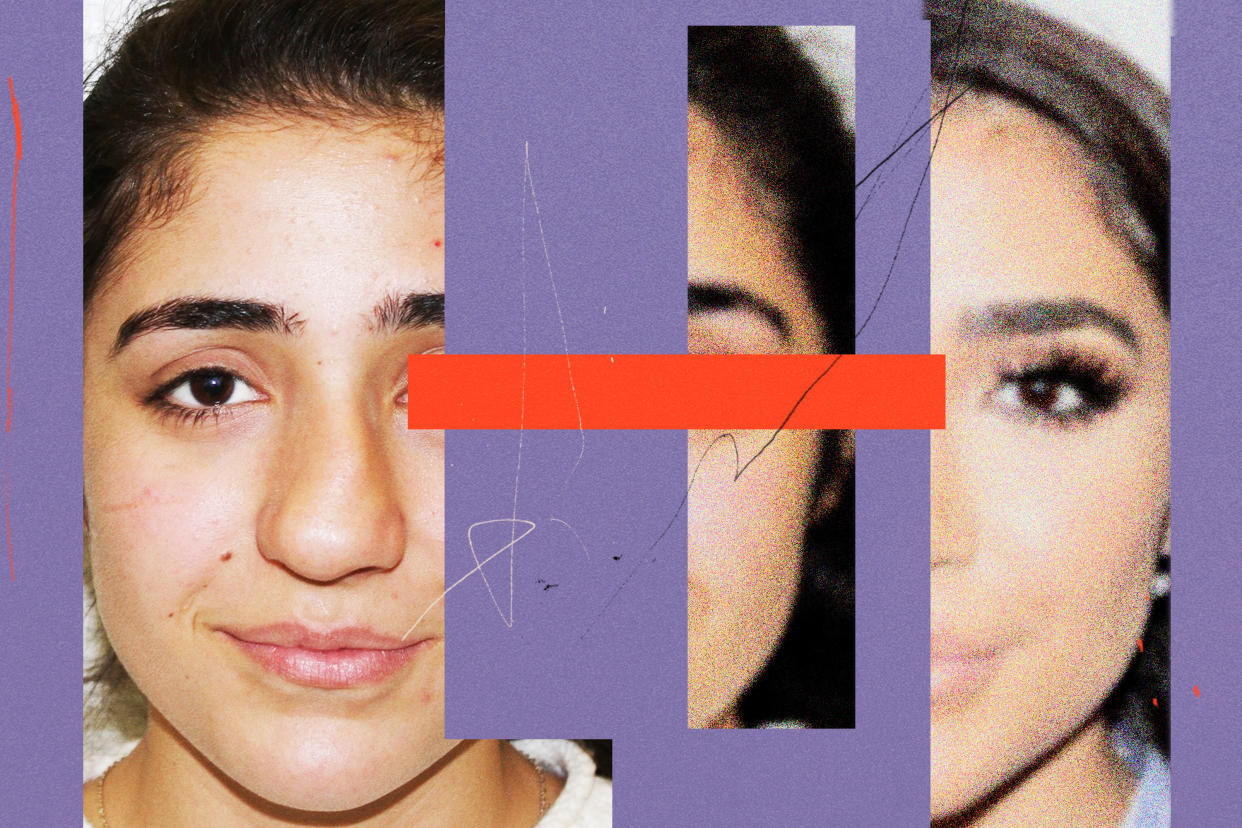Extreme Turkish plastic surgery before-and-after photos are all over the internet. Are they the real deal?

If you’ve scrolled through social media in recent months, you may have seen jaw-dropping before-and-after transformation photos credited to Turkish plastic surgeons. Many of these makeovers feature patients who often look decades younger than their pre-surgery pics — and sometimes, they look like new people entirely. The results can often defy belief — and experts say some skepticism is warranted, especially if you’re thinking about going under the knife yourself.
Ahead, experts explain what’s driving the Turkish cosmetic surgery boom, what to consider when it comes to medical tourism and why these dramatic photos — whether they come from abroad or from a clinic down the street — can’t always be trusted.
Why Turkish plastic surgery photos are popping up online
Turkey ranks eighth among countries with the highest plastic surgery rates per capita and is a popular place for tourists seeking to have cosmetic work done at a lower cost. With that has come a flood of social media accounts posting before-and-after photos in which so-called patients (mostly Turkish residents, but also some identified as medical tourists from around the world) look completely unrecognizable after their cosmetic procedures.
But all may not be as it seems. Dr. Sam Rizk, a New York-based facial plastic surgeon, tells Yahoo Life that we shouldn’t trust everything we see online, especially when it comes to aesthetic medicine. “Social media is filled with both AI-generated and bait-and-switch imaging, meaning that the outcomes you see are either computer-generated or different people entirely,” he says.
While it’s difficult to verify the authenticity of every cosmetic surgery photo that’s gone viral, there have been reports dismissing many of these images as fake. In one recent case, a Turkish man pictured in a “seemingly miraculous” after shot confirmed that a different man was used in the before photo, and denied undergoing the procedures claimed online.
Even if the surgery is real, however, the photos may be misleading. Dr. Anthony Youn, a plastic surgeon who shares aesthetic medicine video content online, took to YouTube to post a video about an Instagram account that posts some of these incredible before-and-after photos. According to Youn, who says that some of the plastic surgery accounts have been taken down, it is actually the “before” images that are the problem in some cases. In his video, he claims that the posts do not disclose that photos of individuals with larger noses were taken after the patients were injected with a local anesthetic, which makes their nose seem far bigger and the facial change much more extreme.
How these before-and-afters can affect us
Seeing extreme before-and-after plastic surgery photos can have a important impact on your body image. Janet Lydecker, an assistant professor of psychiatry at Yale University, tells Yahoo Life that the purpose of these photos is to make comparisons — and it makes us pay attention to why certain images are deemed better than others. This “comparing and judging mindset” can lead to feelings of anxiety, dissatisfaction and even hopelessness about aspects of our own appearance.
One way to avoid this? Avoid looking at these photos in the first place — even if you understand that they may be altered, Lydecker says. “Research has found that we believe that the images we see are real even when the logical part of our brain — even a ‘warning label’ saying the image was digitally altered — does not prevent body dissatisfaction,” she says.
What to know if you’re seeking cosmetic surgery abroad
It’s easy to be swayed by these photos if you’re looking to undergo a cosmetic procedure yourself — especially given the growth in medical tourism. People may choose to travel outside of their home country for plastic surgery for several reasons, including lower costs, shorter wait times and easier access to certain procedures. Some people also seek out the work of specific surgeons, sometimes found through social media.
But it’s important to do your research — and not be drawn in by unrealistic images or cheap price tags. Dr. Gabriel Chiu, a plastic and reconstructive surgeon in Beverly Hills, Calif., tells Yahoo Life that safety must come first. “The rules and protocols here in the U.S. can vary from state to state, but not like it can from one country to another,” he says. “The United States has some of the most comprehensive rules and regulations made to protect the consumer and patient. While there are popular countries for medical tourism … it may be more dangerous to have a procedure performed abroad rather than locally.”
In the case of Turkey, patients should make sure that their doctor is a member of the Turkish Society of Plastic, Reconstructive and Aesthetic Surgeons, an organization that represents qualified plastic surgeons in Turkey and sets standards for safety and ethics. It’s also important to consider the risks and extra costs should the procedure not go as planned. What’s the worst-case scenario if implications arise while you’re abroad, and will you require (more expensive) follow-up care back home?
Says Rizk: “I've done revisions on some truly disastrous outcomes from all over the world, including Turkey, and the story is always the same: Both the price tag and the promise were too enticing to ignore.”


